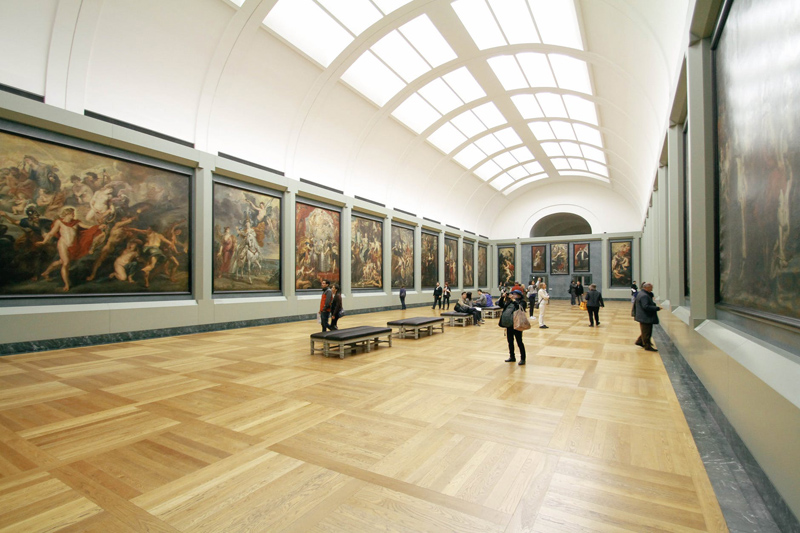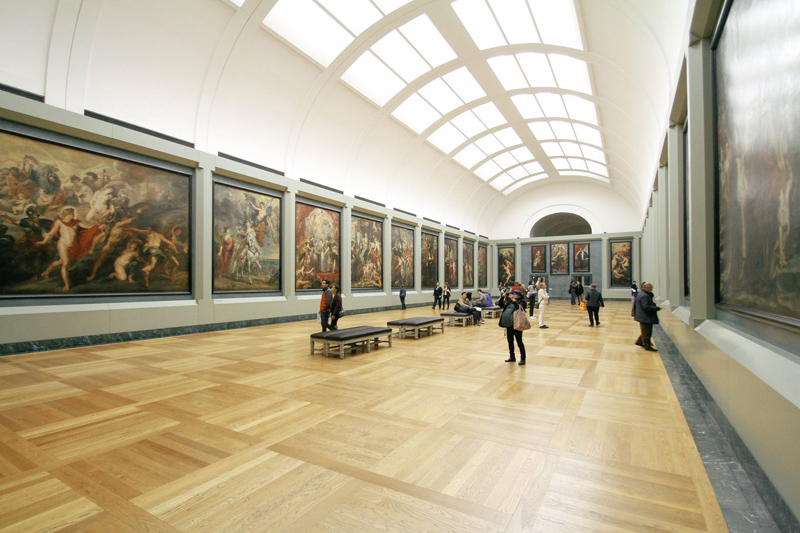Museum Career Skills – Public Speaking

Originally, my position did not require public speaking. In fact, it still doesn’t. But yet, I find myself giving 5-6 public programs every month, and it has greatly enriched my job as curator, increased my profile in the community, and provided a new venue for my museum to reach new audiences.
I have found that public speaking is invaluable to my career, and it could be to yours too.
Here’s how to get started.
First of all, you need to find something to research that you will truly enjoy. Something that will completely envelop you. Something you can become an “expert” in. For me, it was my first book.
I published a history of my city, which took me about 6 months to research. I became totally engrossed in the story. I combed through my museum’s archives for research material and photographs. I scanned nearly 200 images, but my publisher said I could only choose 50 for the book.
I thought it was a shame for those wonderful pictures to go back into file drawers and not be shared with the people in the community who would enjoy seeing them. So I developed a lecture series based on the themes in my book. I started out using an old-fashioned slide projector, but I have since graduated to PowerPoint, which provides a much wider range of options to dazzle the audience.
Because I had spent so much time researching the book, I knew a great deal about my topic. That made all the difference in the world. In college I had given many oral reports, but I had been so busy with multiple projects that I hadn’t focused enough on any one of them. I wasn’t prepared.
When I got up in front of the class, my neck would always get red blotches on it (which I didn’t know until a dear friend told me so, which only increased my nervousness!). My voice got shaky, and I was easily distracted from my outline. And, I only gave the talk once, and quickly moved on to the next assignment.
My museum outreach programs are completely different. Not only was I much more knowledgeable about my subject matter than I had been in college, I have given most of my programs multiple times, which has made them better.
Even if you haven’t written a book, local history is accessible to any museum professional. If you haven’t found a job yet, meet with the curator of your local museum and ask if you can develop public programs for them as an intern or volunteer.
In addition to the lecture series based on my book, I have turned all of my temporary exhibitions into public programs. That way, after the exhibition has closed and all of the artifacts have been placed back in storage, my hard work still lives on in another form. Plus, it also gives me multiple topics to appeal to more groups, as well as a reason to go back to the same group and speak again.
Any topic is valid – there is a history to everything! What are you interested in? Do you collect anything? Turn it into a program!
So how do you find groups to speak to? I have spoken to AARP, garden clubs, sororities, luncheon clubs, rotaries, church groups, social clubs, and women’s clubs. The more places you speak, the more people will book you. If you do a good job, word of mouth will spread. You can get started with a simple phone book or internet search and go from there.
Other public speaking opportunities for museum professionals include running workshops, giving lectures, and conducting gallery talks in your museum. You can also participate in local, regional, and national conferences.
Conquering a fear of public speaking isn’t easy, but it can be done. And the world will open up to you once you do!
I have found that public speaking is invaluable to my career, and it could be to yours too.
Here’s how to get started.
First of all, you need to find something to research that you will truly enjoy. Something that will completely envelop you. Something you can become an “expert” in. For me, it was my first book.
I published a history of my city, which took me about 6 months to research. I became totally engrossed in the story. I combed through my museum’s archives for research material and photographs. I scanned nearly 200 images, but my publisher said I could only choose 50 for the book.
I thought it was a shame for those wonderful pictures to go back into file drawers and not be shared with the people in the community who would enjoy seeing them. So I developed a lecture series based on the themes in my book. I started out using an old-fashioned slide projector, but I have since graduated to PowerPoint, which provides a much wider range of options to dazzle the audience.
Because I had spent so much time researching the book, I knew a great deal about my topic. That made all the difference in the world. In college I had given many oral reports, but I had been so busy with multiple projects that I hadn’t focused enough on any one of them. I wasn’t prepared.
When I got up in front of the class, my neck would always get red blotches on it (which I didn’t know until a dear friend told me so, which only increased my nervousness!). My voice got shaky, and I was easily distracted from my outline. And, I only gave the talk once, and quickly moved on to the next assignment.
My museum outreach programs are completely different. Not only was I much more knowledgeable about my subject matter than I had been in college, I have given most of my programs multiple times, which has made them better.
Even if you haven’t written a book, local history is accessible to any museum professional. If you haven’t found a job yet, meet with the curator of your local museum and ask if you can develop public programs for them as an intern or volunteer.
In addition to the lecture series based on my book, I have turned all of my temporary exhibitions into public programs. That way, after the exhibition has closed and all of the artifacts have been placed back in storage, my hard work still lives on in another form. Plus, it also gives me multiple topics to appeal to more groups, as well as a reason to go back to the same group and speak again.
Any topic is valid – there is a history to everything! What are you interested in? Do you collect anything? Turn it into a program!
So how do you find groups to speak to? I have spoken to AARP, garden clubs, sororities, luncheon clubs, rotaries, church groups, social clubs, and women’s clubs. The more places you speak, the more people will book you. If you do a good job, word of mouth will spread. You can get started with a simple phone book or internet search and go from there.
Other public speaking opportunities for museum professionals include running workshops, giving lectures, and conducting gallery talks in your museum. You can also participate in local, regional, and national conferences.
Conquering a fear of public speaking isn’t easy, but it can be done. And the world will open up to you once you do!
You Should Also Read:
Museum Career Skills -- Research and Writing
Museum Employment Resources
Finding Your First Museum Job

Related Articles
Editor's Picks Articles
Top Ten Articles
Previous Features
Site Map
Content copyright © 2023 by Kim Kenney. All rights reserved.
This content was written by Kim Kenney. If you wish to use this content in any manner, you need written permission. Contact Kim Kenney for details.



